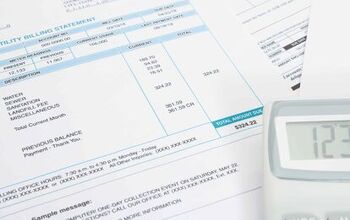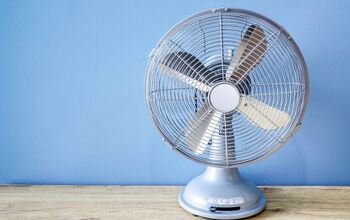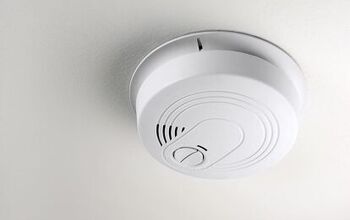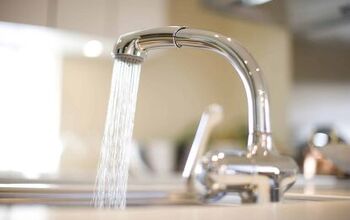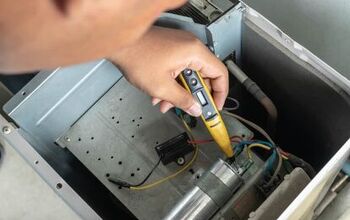Why Is My Water Bill So High?

Bills don’t go away, no matter how much we want them to. However, most people get used to their bills and notice when something seems unusual with them. So, you may ask, why is my water bill so high?
Your water bill may be high because your toilet is leaking and constantly running, which can waste 200 gallons per day. Pipe leaks can also increase your water bill, as your water meter will still read it as water you use, despite it being unintentional. Filling a swimming pool each summer also costs up to $500, depending on the pool’s capacity.
Pay for routine plumbing inspections to avoid leaks that would otherwise increase your water bill. Don’t hesitate to call your water supplier if you suspect it increased the utility rate. Follow along as we explore why your water bill is so high.
Why Did My Water Bill Go Up?
1. Toilet Leak
Is your toilet leaking and constantly running after flushing? If so, that can explain why your water bill is so high lately, and it demands immediate attention. Toilets that constantly run can waste up to 200 gallons in a single day, which costs a fortune.
This can add a minimum of $30 to your water bill each month. It can also render your toilet ineffective in many cases, and you shouldn’t put up with it. Contact a plumber right away if your toilet is leaking or continually running.
You can expect to spend between $100 and $600 to repair a toilet that keeps running. That is worth it compared to continually paying exorbitant water bills.
2. Pipe Leak
Pipe leaks can cause countless problems, ranging from water damage and mold to foundation damage and high water bills. In many cases, people don’t know they have a pipe leak until they receive an exorbitant water bill. This can shock you at first, but it should inspire you to inspect your pipes or hire a plumber to do so.
The tricky part is that some pipe leaks are hard to find, as they take place behind walls. Water meters don’t care that you didn’t intentionally use the water that leaked. Pipe leaks typically register as water that you use, even if you don’t know it’s going on.
The average cost to fix a pipe leak is $500, but it can cost as little as $150 or as much as $1,000-$5,000. Factors such as the location of the leak, the severity, and the cost of labor ultimately determine the cost. In some cases, you may also have to spend money to repair water damage.
3. Running A Sprinkler System
Many homeowners look forward to summer, but they don’t necessarily love the added expenses that come with it. That’s especially true if you have a sprinkler system and run it daily throughout summer. Sprinkler systems typically run for roughly 2 hours per week, but it varies based on the system and the size of your yard.
That entails using a lot of water, especially if you have a large lawn and lots of plants. Rotary sprinklers typically run longer than standard spray sprinklers, which only run for 5-10 minutes in many cases. However, rotary sprinklers can run for up to 30 minutes.
A sprinkler system can add between $50 and $200 per month to your water bill during summer in many climates. However, this may be a year-round cost if you live in a climate where it stays consistently warm season by season.
4. Increased Water Use
Has your family recently grown, or have you had guests stay at your home? If so, that may be why your water bill is so high. That’s especially true if you have long-term guests who use your plumbing fixtures and take showers.
Luckily, this doesn’t require expensive plumbing repairs, as it’s natural when more people run sinks, toilets, and showers. Parents often notice water bills increase when their children get out of school for the summer. The bill shouldn’t increase too drastically in this case, but it will likely be noticeable.
You should see your bill decrease once your guests and roommates leave. However, you must get used to the increased bill if your family has grown, as that is part of family life.
5. It’s Swimming Pool Season
Did you recently open your swimming pool and notice high water bills? Unfortunately, that is an unavoidable part of having a swimming pool. Filling a swimming pool typically costs up to $180, but it depends on your pool’s capacity.
After that, you must regularly top off the water level in your pool. This can lead to exorbitant water bills throughout the summer. This could come as a shock if you recently built a pool or moved into a house that has one.
Regularly filling a pool with water throughout the season typically costs $500, but it varies based on capacity. Patch leaks to ensure your pool holds water, or else you may spend thousands of dollars refilling it. Naturally, your water bills will decrease when you close your pool for the season.
6. Increased Water Bill Rate
It’s no secret that living costs can drastically increase over time. Whether it be the cost of groceries, rent, or utility bills, life has become more expensive. Your water bills may have increased simply because the local supplier has raised its rate.
You can typically tell this is the case if you find no problems with your plumbing fixtures and don’t take long showers. Call your local water supplier if you suspect your utility rate has been increased. Water suppliers are required to notify customers when they raise their rates.
You’re also allowed to request this information as needed. Some people lose track of letters they receive and simply don’t know about the recent rate increase. Don’t hesitate to call your water supplier if you’re confused about a recent bill.
7. Water Softener Problems
Do you have a water softener? If so, you may be experiencing some problems that explain why your water bill is so high lately. Water softeners regenerate and clean your water to remove excessive minerals, also known as hard water.
It can experience problems when it continually regenerates water and gets stuck in a cycle. The more the water softener flushes, the more water you will waste. This can significantly increase your water bill until you hire a plumber to inspect and fix the problem.
The average cost to repair a water softener is $550, but it varies based on the cause of the problem. You may need to replace your water softener if it’s beyond repair, especially if it’s over 10 to 15 years old. Replacing a water softener costs $1,500, on average, but it could cost more or less based on the unit, its capacity, and labor costs.
8. Watering Plants
Do you regularly spray your plants with a hose or fill watering cans to water them? If so, this will naturally increase your water bill each spring and summer. Granted, it shouldn’t increase your water bill as much as a pipe leak or running a sprinkler system.
However, you will notice an increase in your water bills between April and August each year. This is a bill increase that most homeowners can justify. After all, you can’t enjoy a garden full of nice plants unless you water them.
Summing It Up
Toilet and pipe leaks can waste many gallons of water per day, which can explain why your water bill is so high. Water softener problems and running sprinkler systems can also explain why your water bill is so high. Contact your water supplier to see why your bill is so high if you can’t find any plumbing issues that explain the increase.
Related Guides:

Nick Durante is a professional writer with a primary focus on home improvement. When he is not writing about home improvement or taking on projects around the house, he likes to read and create art. He is always looking towards the newest trends in home improvement.
More by Nick Durante













